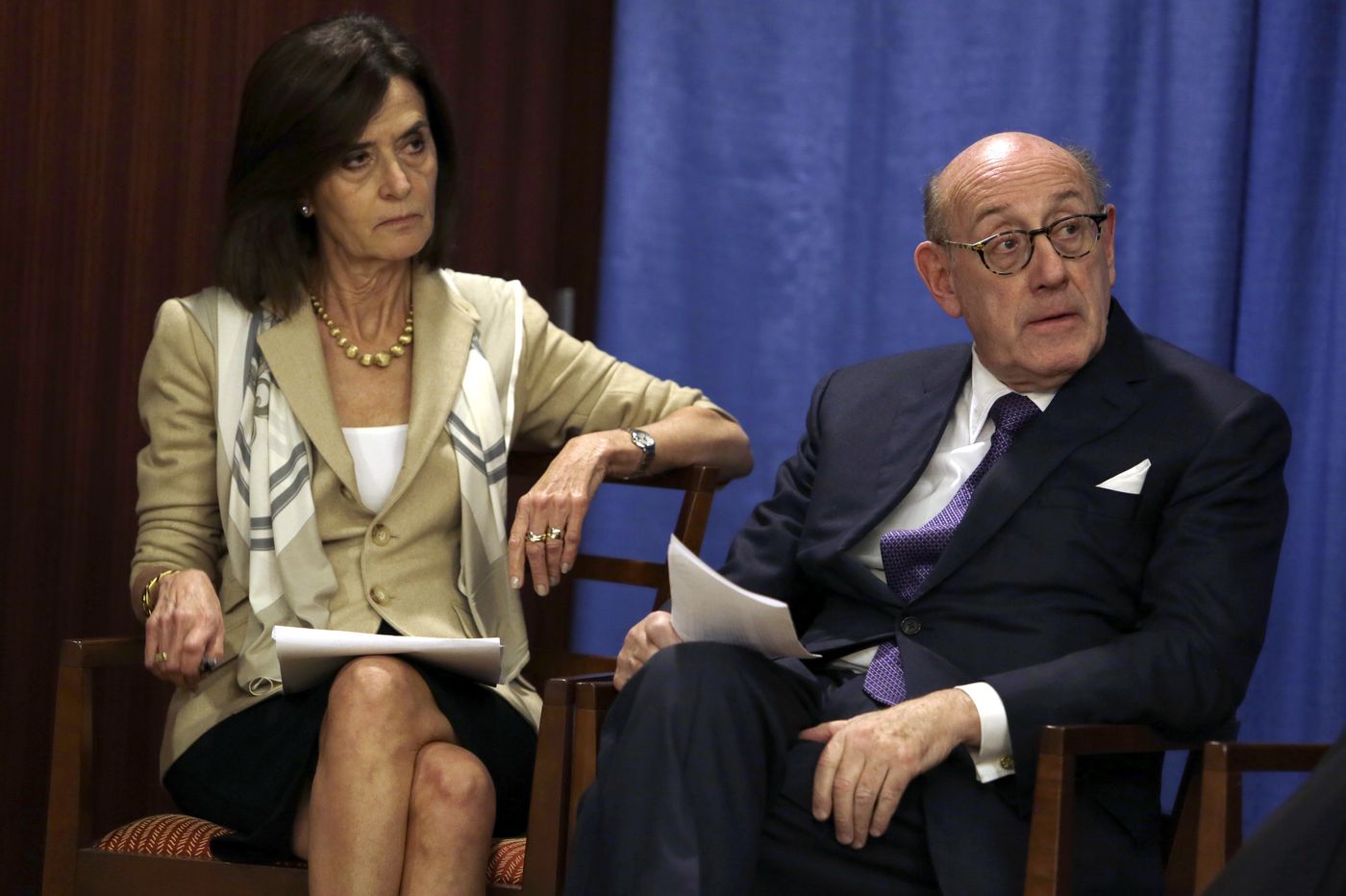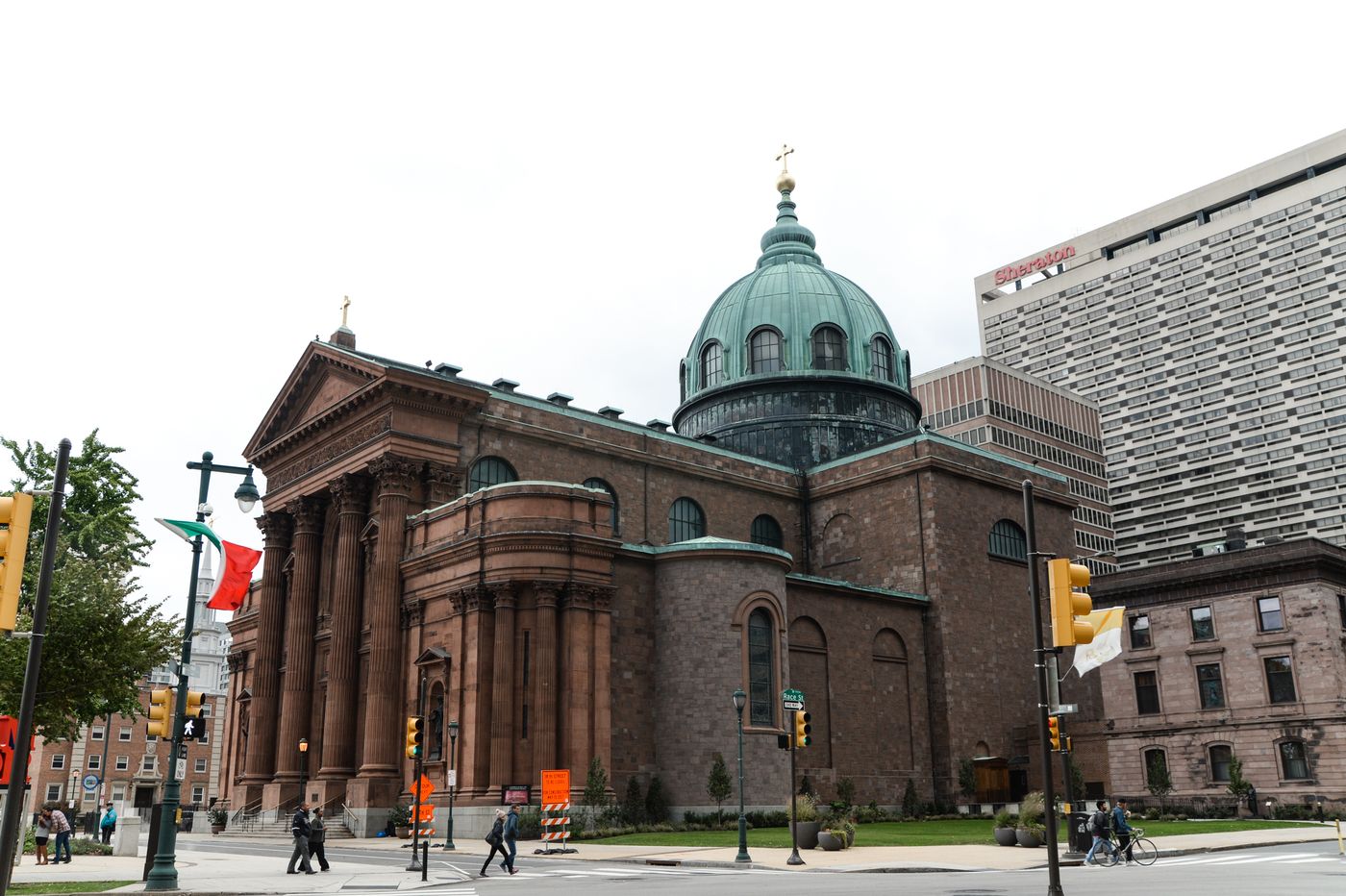Some Catholic Clergy Abuse Victims Shut out of New Compensation Funds
By Julia Terruso and Angela Couloumbis
Last month, the Archdiocese of Philadelphia launched a compensation fund program that would, in the words of Archbishop Charles J. Chaput, begin to acknowledge the "evil done” to scores, if not hundreds, of victims who were abused as children by Catholic clergy. The fund, and others like it statewide, were established in part as a preemptive measure in the wake of an unsuccessful but hotly contested legislative proposal to change the statute of limitations and let victims sue for decades-old abuse. Church officials and some advocates have hailed the new efforts to acknowledge and compensate victims. Yet an entire class of victims is being shut out of Philadelphia’s program because their assailants belonged to independent Catholic religious orders, even in cases where the abuse occurred at diocesan parishes or schools. Nearly a fourth of the abuse claims submitted so far to the archdiocese have been rejected because they allege abuse by members of religious orders, such as the Franciscans, Augustinians, or Jesuits. One woman who filed such a claim this fall said it was the first time she ever told anyone about the Spiritan order priest she said repeatedly pulled her from her first-grade class in the 1950s to grope her at Our Lady of the Most Blessed Sacrament school in the city’s Fairmount section. When she was told she was ineligible for compensation, she said, "I felt like I was being violated all over again.” The Philadelphia Archdiocese was the first diocese statewide to launch its compensation fund, formally known as the Independent Reconciliation and Reparations Program (IRRP), and already has fielded 42 applications. The other dioceses are expected to have their funds up and running early next year. (Matt Haverstick, the lawyer representing the dioceses of Harrisburg and Greensburg, said Thursday that the those two dioceses “intend to include" victims of order priests when they launch their compensation programs.) Philadelphia’s program is open to any person who was a child victim of sexual abuse by a priest or deacon within its jurisdiction, which beyond the city includes Bucks, Chester, Delaware and Montgomery Counties. Claims can be submitted through Sept. 30, 2019. The archdiocese sent information packets about the fund to more than 340 people who were known or believed to have been victimized by archdiocesan clergy or staff over the past decades. It did not notify alleged victims of members of religious orders who for years staffed archdiocesan schools and celebrated Masses and sacraments in its churches. If those victims register as “potential claimants” on the website set up for the program, they are told they cannot participate, according to Camille Biros, one of the fund’s administrators. Of the 42 claims submitted thus far, nine have been turned away for that reason. In an interview this month, Biros said the rationale behind the eligibility rule is that although religious order priests may have worked in diocesan facilities, they were not ordained by or within a diocese and “do not fall under the administrative umbrella of the rules and regulations” that apply to most parish priests. “It’s a very difficult thing to explain to a potential claimant why their claim can’t be considered,” Biros added. She said claims involving religious order priests are forwarded to the superiors of that particular order — just as allegations against priests of other dioceses are forwarded to their bishop. When asked why the program does not accept claims from victims of religious-order priests, Philadelphia Archdiocese spokesperson Ken Gavin said the compensation fund program is independently run and, as such, “I cannot speak on its behalf.” It’s not a situation unique to the church in this region or state. As of 2014, about 30 percent of the 38,809 priests in the United States were members of religious orders, according to the U.S. Conference of Catholic Bishops. And about 20 percent of all Catholic clergy sex abuse allegations nationwide in the past five years have involved religious order priests, according to audit information from the conference. Religious order priests often focus on specific areas of spirituality, like education, or nursing — and are governed by their own superiors and rules. “They have their own proper law, their own institutions, their own statutes that would determine who can be a member,” said the Rev. Robert J. Kaslyn, a Jesuit priest and professor of canon law at Catholic University of America in Washington. “If a priest acts inappropriately, the one under whom he is exercising his priesthood is responsible."
Because the orders are typically smaller than dioceses, so too is their budget for compensating victims, Kaslyn said. There have been exceptions. In 2014, 88 sexual abuse victims of a Franciscan friar who served in the Altoona-Johnstown Diocese received an $8 million settlement, funded in part by that diocese. “There is a joint responsibility in such cases," said Richard Serbin, a plaintiffs’ attorney who has handled dozens of sex abuse cases, including for victims of the friar in the Altoona-Johnstown case. “It’s like two employers employing someone to do a task. They both share the responsibility.” Serbin called church-led compensation funds inadequate, in part for that reason. He supports creating a two-year window in the state’s statute of limitations that could pave the way for lawsuits by any accuser against any alleged abuser. Under current law, victims of child sexual abuse have until age 30 to file such legal claims; victims and advocates say it can take decades for victims to come forward. A claim denied The woman from Fairmount said it took her 60 years to tell anyone about the abuse she said she endured in the first grade. The first person she told was Biros, the compensation fund administrator. “I’ve carried that pain now for so many years,” said the woman, who asked to remain anonymous. "I’m a grandmother, I’m a mother, I’m an aunt, and I’ve always been very protective of the little people in my life because of what my experience was. This was my opportunity to help that little girl inside me.” She was 6 years old in 1958, she said, when the Rev. John R. Marx, who taught Latin to the altar boys at the school, would pull her from her classroom. “He would carry me up and down the aisles with his hand in my panties, his fingers in my panties,” she said. She said Marx, who died in 1995, abused her more than 200 times over two years. Her parents were separated and Marx provided counseling, food, and gifts to her mother, she said. The abuse ended in 1960 when she and her mother moved in with her grandmother and she changed schools. It caused her decades of anxiety and trust issues, she said. She hoped the compensation fund could pay for some long-overdue therapy. But weeks after her conversation with Biros, she received a letter saying her claim would not be considered because Marx was a member of the Spiritans. “Unfortunately, after review of the information you provided, we have determined that you do not meet the eligibility criteria," the letter said. She was crushed. “I couldn’t believe that I finally got up the courage to come forth and then to get that letter," she said. "I didn’t understand it.” The order’s spokesman, the Rev. Jeff Duaime, said it had not received allegations against Marx. He said the order, based in Bethel Park, Pa., gives victims therapeutic support but not monetary compensation. The Philadelphia-area accuser said she has not approached the order. Her lawyer, Jordan Merson, said the situation shows why the statute of limitations needs to be changed. “Unless the order decides to do right by her, which there’s no indication they are, she has no options for recourse,” he said. Merson said he has had more than a dozen other clients' claims rejected by similar funds set up in New York because the accused priests belonged to religious orders. He said he’s also had cases denied in which the accusations involve lay employees, including one sexual education counselor. “It is clear that this program, the IRRP, does not provide a global resolution to this problem," he said. “It provides a potential mode of recourse to a small percentage of victims of child sex abuse.” Sometimes orders do compensate victims. Stephen Jimenez, who was abused as a boy in Brooklyn and has become an advocate for survivors of clergy sex abuse in New York, was awarded $75,000 by the Xaverian Brothers for abuse he endured in elementary school. The Brooklyn Diocese fund doesn’t accept claims against religious order priests. “It’s kind of passing the buck. I don’t know how else to say it,” Jimenez said. “It’s all about money and it’s all about limiting their damages.”
|
.
Any original material on these pages is copyright © BishopAccountability.org 2004. Reproduce freely with attribution.

